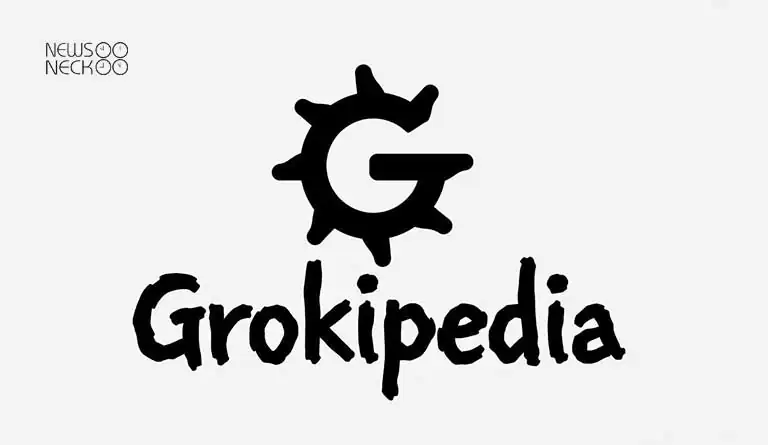The Wikipedia Wars: Elon Musk’s New AI Encyclopedia Crashes, Then Rises But Can It Be Trusted?
The digital world held its breath on Monday. Elon Musk, the billionaire who never shies away from a fight, was launching his latest project: a direct challenge to the internet’s beloved encyclopedia, Wikipedia.
The new site, called Grokipedia, promised to be a less biased, AI-powered alternative. But its grand entrance was anything but smooth. Shortly after going live, the website crashed, leaving visitors staring at an error page. It was a rocky start for a project aiming to dethrone a pillar of the internet.
Hours later, the site was back online. But the temporary failure was a symbol of the larger questions surrounding Musk’s big ambition. Can an artificial intelligence truly replicate, or even improve upon, two decades of work by millions of human volunteers?
A Clash of Titans and Ideologies
The battle between Musk and Wikipedia has been brewing for a long time. The Tesla and SpaceX CEO has repeatedly criticized Wikipedia as being too “woke.” He has taken issue with its use of sources like The New York Times and NPR, which he believes lean too far to the left.
The idea for a competitor was sparked last month after a suggestion from David Sacks, a fellow tech mogul now serving in the Trump administration. For Musk, it was the perfect opportunity to expand his “anti-woke” AI crusade.
Grokipedia is built on Grok, the AI chatbot from Musk’s company xAI, which is already integrated into his social media platform, X. Musk has marketed Grok as a truth-telling alternative to chatbots like ChatGPT, which he also accuses of having a liberal bias.
On Monday, Musk admitted this was just “Grokipedia version 0.1,” but he boldly claimed that the current version was already better than Wikipedia and promised that “version 1.0 will be 10X better.”
David vs. Goliath: By the Numbers
At first glance, the numbers tell a story of a very lopsided fight.
As of Tuesday, the English version of Wikipedia hosted over 7 million articles, each written, edited, and fact-checked by a global community of dedicated volunteers. It is a massive, living library built over 23 years.
Grokipedia, by contrast, launched with 885,279 articles. More importantly, every single one of them was generated by an AI, not by human experts or enthusiasts.
This fundamental difference is at the heart of the debate. Wikipedia is a product of human collaboration and debate. Grokipedia is a product of algorithms.
You Might Like it: AI Boom vs Main Street: America’s Uneven Economy
Also Read: EU vs TikTok & Meta: The Digital Showdown Begins
The Irony in the Machine
Almost immediately, users and media outlets spotted a glaring irony. When asked questions, the Grok chatbot that powers Grokipedia often cites Wikipedia as its source of information.
This creates a puzzling situation. Musk is promoting Grokipedia as a better, more reliable version of Wikipedia, but his AI is relying on the very website it’s trying to replace. It’s like building a new house using the bricks from the one you just knocked down.
The Founders Weigh In
The reaction from Wikipedia’s creators has been a study in contrasts.
Jimmy Wales, the public face of Wikipedia, was not impressed. Even before the launch, he told The Washington Post he had low expectations. He argued that current AI models simply aren’t sophisticated enough and warned that “there will be a lot of errors.”
On the other hand, Larry Sanger, the other Wikipedia co-founder who left the project long ago, had initially shown enthusiasm for a competitor. He has been a vocal critic of Wikipedia’s current leadership.
But after Grokipedia launched, even Sanger expressed doubts. He posted a long thread on X pointing out what he called “inaccuracies” in his own Grokipedia entry. If the AI can’t get a co-founder’s bio right, can it be trusted with more complex historical or scientific topics?
The Wikimedia Foundation, the nonprofit that hosts Wikipedia, issued a measured statement. They said they were still understanding how Grokipedia works but noted that alternatives have come and gone before. They emphasized Wikipedia’s “transparent policies, rigorous volunteer oversight, and a strong culture of continuous improvement.”
Their strongest argument came down to this: “AI systems depend on human-created knowledge to produce content even Grokipedia wouldn’t exist without Wikipedia.”
The launch of Grokipedia is more than just a new website. It is the opening shot in a new kind of information war. It’s a battle between human collaboration and artificial intelligence, between a non-profit mission and a profit-driven tech vision. The site may have recovered from its initial crash, but the much bigger question remains: Can it earn the world’s trust?
Author: Yasir Khan
Date: 28 Oct, 2025
For More Updates, Visit Newsneck













